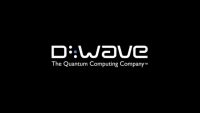D-Wave Plans a Commercial Gate-Model Quantum Computer
October 7, 2021
D-Wave Systems, which in 2011 became the first company to bring a working quantum computer to market, is diversifying beyond the quantum annealing approach that has been its bread and butter and entering the superconducting gate-model sector that will put it in direct competition with IBM. The Canadian company announced at its Qubits conference that it plans to make its first gate model commercially available in 2023 or 2024. While quantum annealing works well for certain specialized functions, gate-model quantum computing is considered more broadly applicable, in areas like materials science and pharmaceutical research.
“Like we did when we initially chose to pursue annealing, we’re looking ahead,” the company notes in its announcement. “We’re anticipating what our customers need to drive practical business value, and we know error-corrected gate-model quantum systems with practical application value will be required for another important part of the quantum application market: simulating quantum systems,” the announcement continues.

Early on, annealing provided the company a fast-track to building quantum applications and today roughly 250 D-Wave customers have built applications for its hardware, accessed primarily through its Leap cloud service, TechCrunch reports.
The British Columbia-based D-Wave is not giving up on quantum annealing, which is particularly well-suited for optimization problems like protein folding and route planning. It will continue to invest in development of its current systems, and estimates that annealing will account for about a third of the quantum application market, which is still in relative infancy.
D-Wave is currently selling “what is, by at least one metric, the most powerful quantum-based computer in existence: The machine has 5,000 quantum logic processing units, or qubits, which are the quantum computing equivalent of traditional computing’s bits,” Fortune reports. But the annealing machine is limited to solving certain types of mathematical problems, known as optimization and sampling.
“D-Wave’s annealing could not simulate the complex atomic-level physics and chemistry interactions that many scientists saw as one of the prime advantages quantum computers would have over conventional ones. Nor could it easily be used to factor large prime numbers, potentially cracking most of today’s most widely-used encryption algorithms,” giving rise to concerns about the advent of “full-fledged quantum computing,” Fortune writes.
D-Wave will use superconducting materials for the qubits in its gate-model computer, taking the approach used in quantum computing initiatives by IBM, Google and Rigetti Computing. Companies including Honeywell and IonQ are experimenting with qubits based on ions held in place by lasers, Fortune reports, noting that others “are exploring qubits created by photons or using semiconductors.”

No Comments Yet
You can be the first to comment!
Sorry, comments for this entry are closed at this time.